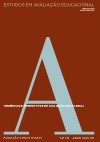Excellence with equity: school factors for educational success in unfavorable circumstances
DOI:
https://doi.org/10.18222/eae266103115Keywords:
Prova Brasil, Evaluation of education, Socioeconomic background, Equity.Abstract
This article analyzes the determinants of learning success of a select group of public schools with students from low socioeconomic backgrounds, considering the results of Prova Brasil 2011 and its Basic Education Development Index. It focuses on the first years of elementary school (1st to 5th year). Based on the data from Prova Brasil, a descriptive and inferential analysis was conducted of the differences between the school factors of 215 schools identified by the study “Excellence with equity” (known as treatment schools) and the schools with similar characteristics in 2007, but whose students did not present the same learning performance in 2011 (called control schools). The results indicate that treatment schools have more directors who are well evaluated by teachers and their performance is greatly influenced by the municipality.
Downloads
References
AIKENS, Nikki L.; BARBARIN, Oscar. Socioeconomic differences in reading trajectories: the contribution of family, neighborhood, and school contexts. Journal of Educational Psychology, Washington D.C., v. 100, n. 2, p. 235-251, 2008. DOI: https://doi.org/10.1037/0022-0663.100.2.235
ALVES, Maria Teresa Gonzaga; SOARES, José Francisco; SILVA, Francely Priscila Costa e. O nível socioeconômico das escolas de educação básica brasileiras. Belo Horizonte: Universidade Federal de Minas Gerais, Grupo de Avaliação e Medidas Educacionais, maio 2012.
BRASIL. Instituto Nacional de Estudos e Pesquisas Educacionais Anísio Teixeira. Microdados da Prova Brasil, 2007, 2009 e 2011. Disponível em: <http://portal.inep.gov.br/basica-levantamentos-acessar>. Acesso em: abr. 2015.
FUNDAÇÃO LEMANN; ITAÚ BBA. Excelência com equidade: as lições de escolas que oferecem um ensino de qualidade aos alunos com baixo nível socioeconômico. São Paulo: Fundação Lemann, Itaú BBA, 2012.
HALLINGER, Philip.; MURPHY, Joseph. F. The social context of effective schools. American Journal of Education, Rackley Building, University Park PA, v. 94, n. 3, p. 328, May 1986. DOI: https://doi.org/10.1086/443853
KOLEN, Michael; BRENNAN, Robert. Test equating, scaling, and linking: methods and practices. 2. ed. New York: Springer, 2004. DOI: https://doi.org/10.1007/978-1-4757-4310-4
MADEN, Margaret. Success against the odds: five years on revisiting effective schools in disadvantaged areas. New York: Routledge, 2004.
MUIJS, Daniel; HARRIS, Alma; CHAPMAN, Christopher; STOLL, Louise; RUSS, Jennifer. Improving schools in socioeconomically disadvantaged areas –
A review of research evidence. School Effectiveness and School Improvement, Rotterdam, v. 15, n. 2, p. 149-175, 2004. DOI: https://doi.org/10.1076/sesi.15.2.149.30433
MURNANE, Richard J.; WILLETT, John B. Methods matter: improving causal inference in educational and social science research. New York: Oxford University Press, 2010.
MURPHY, Joseph; HALLINGER, Philip; MESA, Richard. School effectiveness: checking progress and assumptions and developing a role for state and federal government. The Teachers College Record, New York, v. 86, n. 4, p. 615-641, 1985. DOI: https://doi.org/10.1177/016146818508600407
PERRY, Laura; MCCONNEY, Andrew. School socioeconomic composition and student outcomes in Australia: implications for educational policy. Australian Journal of Education, Camberwell, v. 54, n. 1, p. 72-85, 2010. DOI: https://doi.org/10.1177/000494411005400106
PERRY, Laura; MCCONNEY, Andrew. School socioeconomic status and student outcomes in reading and mathematics: a comparison of Australia and Canada. Australian Journal of Education, Camberwell, v. 57, n. 2, p. 124-140, 2013. DOI: https://doi.org/10.1177/0004944113485836
REYNOLDS, David; CUTTANCE, Peter (Ed.). School effectiveness: research, policy and practice. New York: Routledge, 2010. Contexts of learning.
ROSENBAUM, Paul R.; RUBIN, Donald B. The central role of the propensity score in observational studies for causal effects. Biometrika, v. 70, n. 1, DOI: https://doi.org/10.1093/biomet/70.1.41
p. 41-55, 1983.
SAMEJIMA, Fumiko. Estimation of latent ability using a response pattern of graded scores. Psychometrika Monograph Supplement, v. 34, n. 4, pt. 2, p. 100, 1969. DOI: https://doi.org/10.1007/BF03372160
SNIPES, Jason; DOOLITTLE, Fred; HERLIHY, Corinne. Foundations for success: case studies of how urban school systems improve student achievement. New York: MDRC for the Council of the Great City Schools, 2002. Disponível em: <http://eric.ed.gov/?id=ED468981>. Acesso em: 27 ago. 2014.
SOARES, José Francisco; ALVES, Maria Teresa Gonzaga. Effects of schools and municipalities in the quality of basic education. Cadernos de Pesquisa,
São Paulo, v. 43, n. 149, p. 492-517, ago. 2013. DOI: https://doi.org/10.1590/S0100-15742013000200007
SOARES, José Francisco; COLLARES, Ana Cristina Murta. Recursos familiares e o desempenho cognitivo dos alunos do ensino básico brasileiro. Dados, Rio de Janeiro, v. 49, n. 3, p. 615-650, 2006. DOI: https://doi.org/10.1590/S0011-52582006000300007
SOUTHWORTH, Stephanie. Examining the effects of school composition on North Carolina student achievement over time. Education Policy Analysis Archives, v. 18, n. 29, p.1-42, 2010. DOI: https://doi.org/10.14507/epaa.v18n29.2010
WINSHIP, Christopher; MORGAN, Stephen L. The estimation of causal effects from observational data. Annual Review of Sociology, v. 25, p. 659-706, 1999. DOI: https://doi.org/10.1146/annurev.soc.25.1.659
Downloads
Published
How to Cite
Issue
Section
License
Authors who publish in this journal agree to the following terms:
a. Authors retain the copyright and grant the journal the right to first publication, with the paper simultaneously licensed under the Creative Commons Attribution License (CC BY 4.0) license that allows the sharing of the paper with acknowledgment of authorship and initial publication in this journal.
b. Authors are authorized to assume additional contracts separately, for non-exclusive distribution of the version of the paper published in this journal (for example publishing in institutional repository or as a book chapter), with acknowledgment of authorship and initial publication in this journal.
c. Authors are allowed and encouraged to publish and distribute their paper on-line (for example in institutional repositories or on their personal page) at any moment before or during the editorial process, as this can generate productive changes, as well as increase the impact and citation of the published paper (See The Effect of Open Access).







